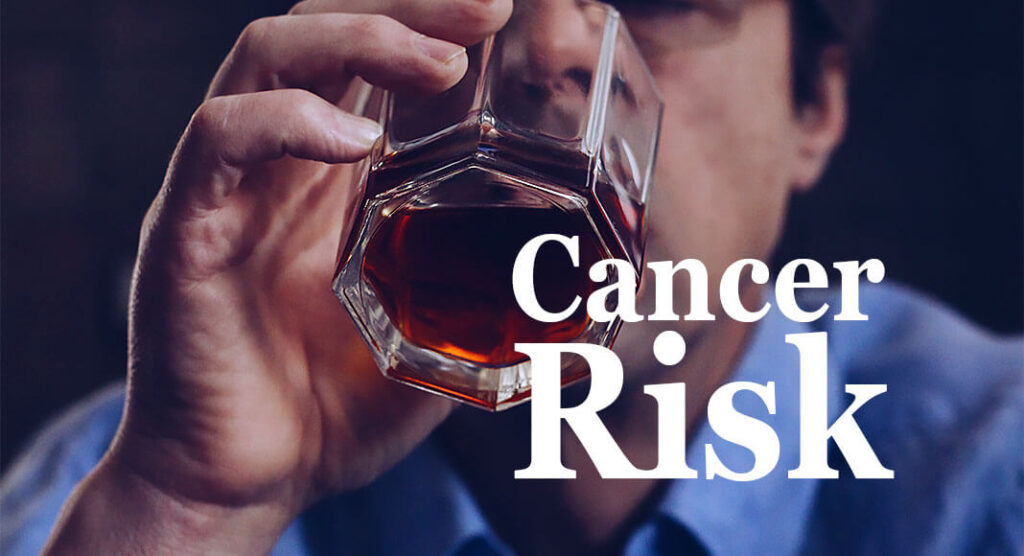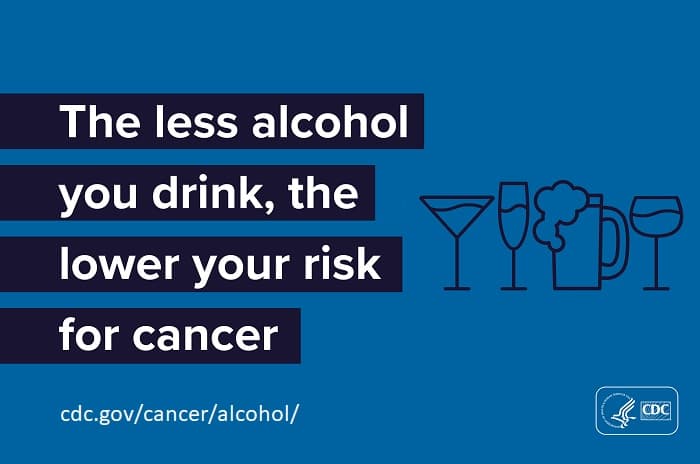
Mega Doctor News
The less alcohol you drink, the lower your risk for cancer.
Drinking alcohol raises your risk of getting six kinds of cancer—
- Mouth and throat.
- Voice box (larynx).
- Esophagus.
- Colon and rectum.
- Liver.
- Breast (in women).
All alcoholic drinks, including red and white wine, beer, and liquor, are linked with cancer. The more you drink, the higher your cancer risk.

What Are the Guidelines for Alcohol Use?
The 2020–2025 Dietary Guidelines for Americansexternal icon recommends that adults of legal drinking age can choose not to drink, or to drink in moderation (two drinks or less in a day for men or one drink or less in a day for women). If you don’t drink, don’t start drinking. Drinking less alcohol is better for health than drinking more.
Don’t drink at all if you—
- Are under the legal drinking age.
- Are pregnant or may be pregnant.
- Have health problems that could be made worse by drinking.
- Are doing things like driving that could be dangerous with alcohol.
- Are recovering from an alcohol use disorder or find it hard to control the amount you drink.
If you’re taking prescription medicine, including cancer treatment,external icon ask your doctor if it’s safe to drink alcohol.
Why Does Alcohol Use Raise Cancer Risk?
When you drink alcohol, your body breaks it down into a chemical called acetaldehyde. Acetaldehyde damages your DNA and prevents your body from repairing the damage. DNA is the cell’s “instruction manual” that controls a cell’s normal growth and function. When DNA is damaged, a cell can begin growing out of control and create a cancer tumor.
What CDC Is Doing
- CDC is supporting states and communities through the National Comprehensive Cancer Control Program to address alcohol use in comprehensive cancer control plans.
- CDC is funding states to study how alcohol affects public health so they can prevent excessive alcohol use.
- CDC is improving public health surveillance on excessive alcohol use, including binge and underage drinking, and harms related to it in adolescents and adults.
- CDC is developing resources on measuring alcohol outlet density to help communities improve the built environment to protect against cancer risk factors.
- CDC is partnering with the National Organization on Fetal Alcohol Syndrome and national health organizations to prevent fetal alcohol spectrum disorders.
- CDC is working with health plans, providers, and national health organizations to increase the provision of alcohol screening and brief intervention.
Information Source: CDC











